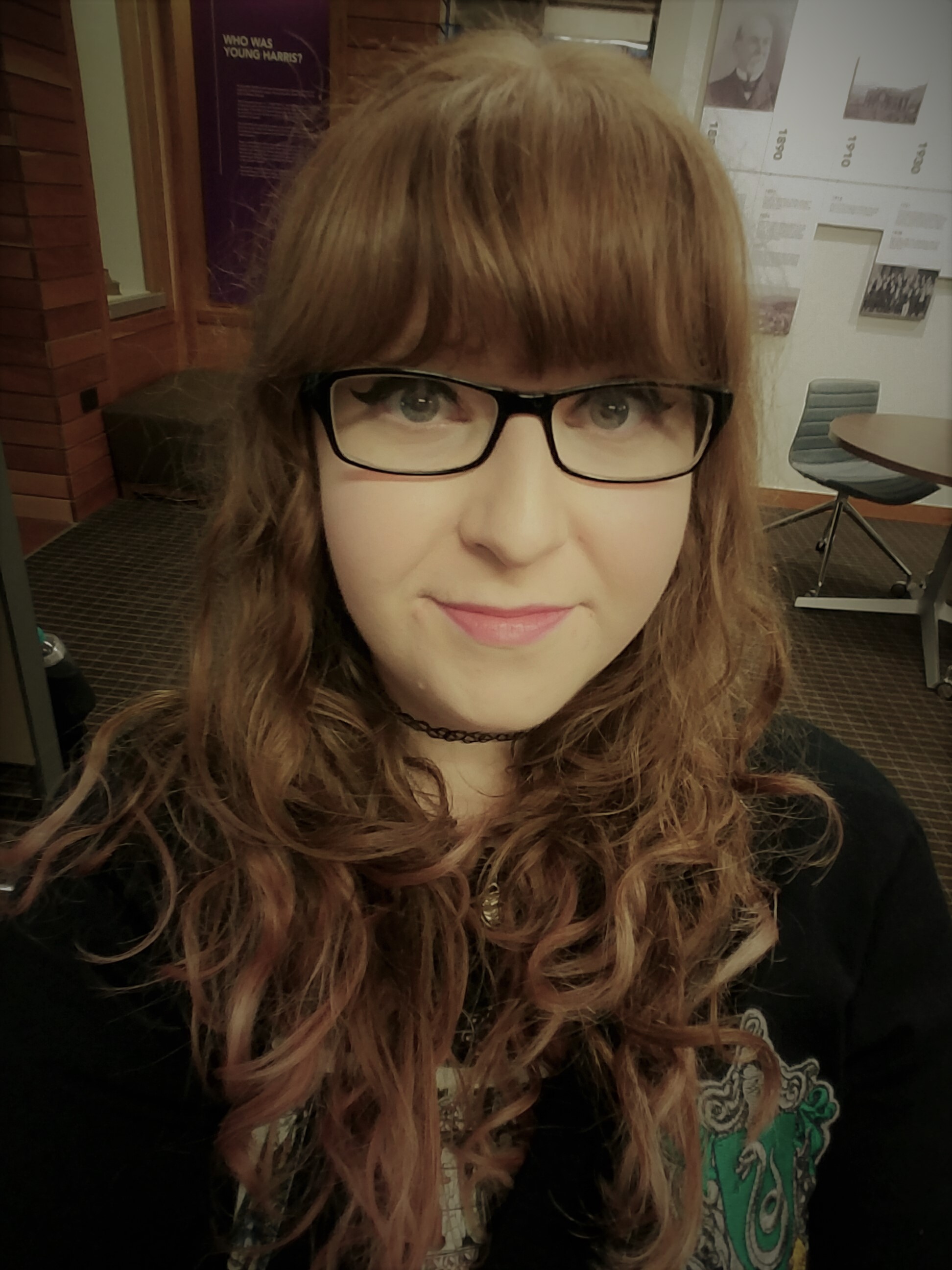Morgan Bilicki is a student at Young Harris College and a finalist in Poetry. We caught up with her this week to ask her a few questions about her life and her craft. Her poem, “Madame Clofullia,” will be published in the 46th annual ASC Writers’ Festival magazine.
The Writer
 What are you reading right now?
What are you reading right now?
MB: Rarely do I read just one thing, and currently I’m working through three. First is Margot Lee Shetterly’s Hidden Figures. I’ve been reading more nonfiction lately and Shetterly’s researching skills just blow me away – I mean, she’s phenomenally thorough and dedicated to detailing this huge area of history that’s previously been ignored. Second, I’m reading James May’s Unquiet Things. Imagery is one of the aspects of poetry that I think all genres of writing should utilize, and May treats the image as the cornerstone of each piece, thereby adding to its strength in a way I want to emulate. Finally, the third book I’m digging through is Green Greener Greenest by Lori Bongiorno. I’ve been trying to implement more eco-friendly habits into my life, and this book helps spell everything out in an obtainable manner.
In what spaces do you like to write?
MB: I like to picture myself sitting in my room at my big, lovely desk. My posture is healthy and comfortable for working at my laptop, and I’m concentrated but still enjoying the process. I’ve got organized notes beside me, and maybe I’ve even got a cup of tea. In reality, though, I slouch on my bed (usually in pajamas) with my laptop slowly burning my leg through my lap desk. I take random Google-breaks to search random things which tend to have nothing to do with what I’m writing, and while the tea sometimes exists, the organized notes do not! It’s not pretty, but it works. (I think.)
Where do you want to go from here? What are your next steps?
MB: I like to plan ahead in little steps – life tends to be pretty unpredictable, so I try to keep my options open! Currently, I’m planning on writing all summer long, then graduating next year. From there, I’ll decide on whether or not grad school is for me. Eventually, I think it’d be pretty cool to share everything I’ve learned and experienced, so maybe I’ll follow the professor’s path. Ultimately, though, I just want to pursue the things I love – like reading and writing!
What’s a source of inspiration for you?
Feminism actually leads me to a lot of the things I end up writing, whether directly or indirectly. There’s a huge gap in literature where women are either nonexistent or mistreated – or worse, stereotyped cookie cutters of an idea– so I feel that it’s important for me to address this as often as possible. Women’s lives are incredibly diverse and packed with stories. I just want to help spread them.
The Work
Why this genre?
It’s funny to think about it now, but I used to never consider myself a poet; I was simply someone who wrote poetry. Because I was home-schooled, I had the freedom to explore my interests, so when a friend’s mother decided to teach a poetry class, I wanted to see if it was for me. One class turned into many, and I spent a good deal of my high school years composing poems in every form I could. When I got to college, though, I just assumed that I was destined for fiction, that poetry would just be a hobby. One, however, does not simply walk away from poetry. Since my high school days, I’ve become obsessed with what a poem can do in such a short amount of space, and how each element of craft plays a role in how the reader digests what’s written. I want to say that I’m attracted to poetry because it’s magical, but really, “magical” doesn’t even begin to describe it.
What do you want readers to take away from your piece?
That anyone can rock a beard.
What was the most challenging part of writing your piece?
Since “Madame Clofullia” is based on a real woman, it was important to me to be accurate to her story while also presenting truths that modern readers could relate to and understand. This balance of historical research and poetic technique was something I hadn’t really attempted before, so keeping everything organized was a challenge. In the end, though, incorporating all of these different elements helped me to orient my focus on condensing and ordering information so as to present the reader with the clearest image possible while also layering in those poetic truths that make for those unforgettable connections between reader and written word.
What are you most proud of in your piece?
I’m totally a line nerd, so I’m pretty proud of the lines in this piece! Lines are so integral to a poem’s make up – they really act as the backbone to the other elements. There’s always a lot of criteria I consider when crafting lines: How do they look in proportion to each other? Is their information organized in a way that makes sense? How long should they be – and should they all be similar in length or does it make sense to have variation? What words end each line, and are they strong? I keep high standards for my lines, and the ones in this piece were a pleasure to craft.
0 Comments